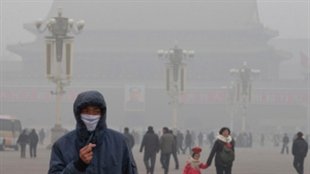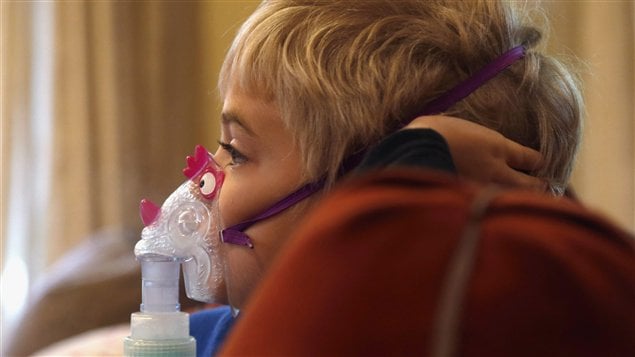“Climate change is already profoundly affecting, but is going to increasingly profoundly affect people around the world…who have respiratory problems,” says Robert Oliphant, head of the Asthma Society of Canada and head of an international group of patient advocacy groups called GAAPP.
The burning of fossil fuels emits greenhouse gases causing climate change, he reasons, and that ultimately ends up in more irritants released into the air which make their way into the lungs.

‘Three ways with climate change’
“You kind of get it three ways with climate change. You get the higher temperatures, more pollen; wetter conditions, more mold; drier conditions, more forest fires and dust. And all of those things conspire to be very difficult for people with respiratory allergies, especially people with allergic asthma,” says Oliphant.
Suffering the most in Canada are small children, aboriginal people who have 40 per cent higher rates of asthma, people who live near industry or high traffic areas, and rural folk who are exposed to more wood smoke and pollen from farm fields.
A global health concern
Canada has high rates of asthma. One in five children has it. “Asthma around the world is a global health concern. It’s a multi-billion dollar health cost,” says Oliphant. The World Health Organization says that in 2012, seven million people died prematurely because of air pollution and that has become the world’s largest single environmental health risk.
The problem is so serious that the Asthma Society of Canada has decided to change its vocation of the last 40 years as a health organisation to one that makes the direct link between environment and health.

‘You can’t choose the air you breathe’
“We’re going to be repositioning ourselves to say that asthma is largely an environmental disease,” says Oliphant. “The quality of air that people breathe is incredibly important to their quality of life.
“We often say that you can choose the food that you eat, you can choose the water that you drink, (but) you can’t choose the air you breathe. And for people with allergies and asthma, that’s absolutely critical that we are in this together as a society. And it’s all around the world.”







For reasons beyond our control, and for an undetermined period of time, our comment section is now closed. However, our social networks remain open to your contributions.